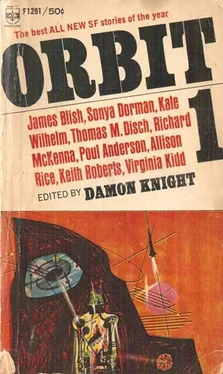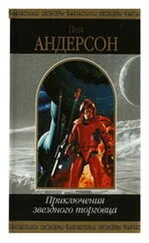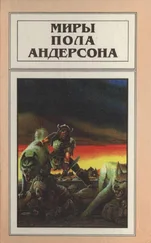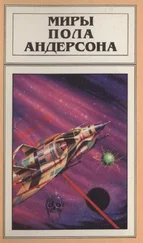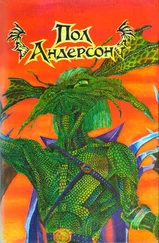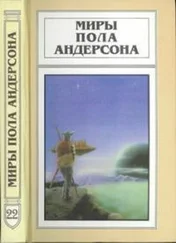Пол Андерсон - Orbit 1
Здесь есть возможность читать онлайн «Пол Андерсон - Orbit 1» весь текст электронной книги совершенно бесплатно (целиком полную версию без сокращений). В некоторых случаях можно слушать аудио, скачать через торрент в формате fb2 и присутствует краткое содержание. Год выпуска: 1966, Жанр: Фантастика и фэнтези, на английском языке. Описание произведения, (предисловие) а так же отзывы посетителей доступны на портале библиотеки ЛибКат.
- Название:Orbit 1
- Автор:
- Жанр:
- Год:1966
- ISBN:нет данных
- Рейтинг книги:4 / 5. Голосов: 1
-
Избранное:Добавить в избранное
- Отзывы:
-
Ваша оценка:
- 80
- 1
- 2
- 3
- 4
- 5
Orbit 1: краткое содержание, описание и аннотация
Предлагаем к чтению аннотацию, описание, краткое содержание или предисловие (зависит от того, что написал сам автор книги «Orbit 1»). Если вы не нашли необходимую информацию о книге — напишите в комментариях, мы постараемся отыскать её.
Orbit 1 — читать онлайн бесплатно полную книгу (весь текст) целиком
Ниже представлен текст книги, разбитый по страницам. Система сохранения места последней прочитанной страницы, позволяет с удобством читать онлайн бесплатно книгу «Orbit 1», без необходимости каждый раз заново искать на чём Вы остановились. Поставьте закладку, и сможете в любой момент перейти на страницу, на которой закончили чтение.
Интервал:
Закладка:
Godwin became aware of warm breathing on his neck and turned to find somebody named Abendstern as rapt by the text as he himself. “Parallel evolution, yes, but it seems to have been more of a two-way street, really. The Leloc themselves devolved, rapidly, while the lower animals they brought with them evolved up, trying all kinds of adaptations with fantastic imitativeness. It’s hard to believe that the Leloc could have been so. . naive… as to be unaware of the hard radiation that their method of travel subjected them to, but it does appear to have been a pioneer trip. Every living creature in the colony must have suffered radically altered chromosomes. The most highly specialized group, the Leloc themselves, had nowhere to go but down. The colonials must have gone back to savagery within a very few generations.”
“The environment was probably too tough for them,” said Godwin.
Abendstern was very positive. “Just the opposite. It was too easy; no competition at all. They probably had a much rougher time in transit — all the colonists, their livestock, the eucalypti and so on were crammed into this very hall.”
“Eucalypti?”
“Yes — wouldn’t you know they’d be a Leloc import? So smell-prominent.” Abendstern indicated that he would like to hit the button and Godwin waved permission. A picture appeared on the screen. “There are fragrant oils in the little leaf glands — there — and with seasonal changes the chemical composition of the oils alters overnight. What had been food becomes poison. Been considered very mysterious, but if we think of the tree as originating in another system, under not one but many suns, it becomes much more logical. The eucalypti have always been classified as members of the myrtle family, but it’s probably another case of parallel evolution. In Europe there is one solitary kind of myrtle; Sanderson says there are over eight hundred kinds of eucalyptus in Australia. And yet — with the animals anyhow — all that productivity is petering out, coming to substantially nothing in the end: out of their Noah’s ark came wolves and bears and dogs — and moles and shrews, and rats and raccoons and skunk and deer, all pouched, and all outdone by their mammalian counterparts.”
Mager, dismissed by the Leloc, headed straight for the little group made up of Godwin and his one friend among the experts. The three coffees that arrived shortly after showed Godwin that Agnes was awake again and — probably — listening. He inquired, “They still feel themselves threatened?”
“Challenged, yes, sir. But we’ve left that to one side. We’re back to working out a basic vocabulary, beyond the original Message from Outside.” Mager gestured at the work papers in the Liaison Agent’s lap.
The phrases leaped out at Godwin. They had puzzled him in his cubicle at Communications Complex; they still puzzled him.
Leaping largely we return. Hearing droops at lapse so great and grasper aches from emptiness.
“What were they trying to tell us for half a year?” asked Godwin. “What does ‘grasper aches from emptiness’ mean?”
“Hands — and something missing. But they don’t exactly have hands, see,” said Mager. “And I couldn’t be sure from the acting out of the term whether it was tools they wanted to be using, and lacked, or friends whose hands they wanted to grip. They don’t seem to have the handshake, but after all we’ve seen them only in a highly formal situation. Who knows how they show affection?”
“I see,” said Wystan, and for the first time, he did, a bit.
“I keep feeling, probing-like, for some spirit of vengeance. If I was them, I’d assume we had destroyed their colony. Especially since bombing has been mentioned. But they just act interested. . and waiting..”
“For what, I wonder?” Godwin mused. “I might come up with something, if I just understood how their minds work.”
“Oh, I understand a little how their minds work, sir,” said Mager diffidently. “It’s like this thing they have about balance. If something threatens them, it is just impossible to run away. As long as they know Exec Harms has made the threat, it would be running away if they raised ship. But, well, for instance, if we had been able to tell them where their colony is, and they had already been planning to go there, then it wouldn’t be running away. It doesn’t matter now, of course.”
“Oh, great,” said Godwin. “I don’t suppose we could get them to take off and come down again slightly backward in time, could we?”
“Sir?”
“Nothing intended. It was just a bad joke.”
“They might, you know,” said Bonwit, from his other side. Or Minowski. Wystan was not sure which of the experts knew about the Leloc method of travel, but whichever one it was had craned precariously over to join the conversation. “If they could just get far enough away first. It looks as if they have no control whatever over the temporal aspects of their flight, and — we are convinced — did not know it until they made this long jump. Maybe they still don’t.”
“Oh, they don’t,” said Mager.
Bonwit — or Minowski — gave him a cool stare and continued: “If they ever get back to their home planet, they may use up the whole of their subjective lifetimes getting far enough away to make stab after stab at landing within their own epoch, and hitting every thinkable era in random order. It looks as if this colonial expedition was the first flight made out of their own system with this method of travel, and I suspect will have been the last.”
Godwin asked, “Why did they decide to return?”
“I can’t prove this, sir,” said Mager, “but something happened along the way. We can’t yet talk in that kind of detail so I don’t know what it was. But, whatever it was, it aroused their suspicions. I think they returned to an intermediate planet where they had made landfall, found it much changed, and beat it back here to check on their colony. That six months in transit from their home system is just a bad guess. They weren’t coming back to the Earth we know, and sending us a message. They had no idea we existed, you know. They expected a Communications Satellite, but they thought it would have been put up by their own people. Six months is only how long we detected them sending the relief message to their colonists.”
“Mager,” exclaimed the participating expert, “you’re right.”
The civ looked as if he had just had a medal pinned on, with kisses on both cheeks. Abendstern said, “You not only talk with the Leloc, you finally got through to a physicist! Congratulations.”
“I’d better be getting back to work,” said Mager, and moved away.
From a far corner of the human side of the hall a shout went up, stopping Mager in his tracks. The large alien, pricking up one ear, swiveled his muzzle toward the improvised chart table and the excited group of humans.
“I think: we’ve got it — a real match on a power installation. The land bridge threw me off. It isn’t where I was always taught, but everything meshes otherwise. We’ve been assuming it would be New Zealand or Australia, but it is actually this little place here called Kukukukuland.”
“Why not?” said Mager. “They had three power installations, or more, and their settlements were spread out all over the world as it then was. Their maps prove the continental drift theory. I mean, it isn’t theory any more-”
One of the recalcitrant experts farther down the line snorted loudly but said nothing.
Mager swallowed, his shyness suddenly enveloping him again. He continued “—and Australia isn’t necessarily where they started out either; it’s just where all that’s left of them ended up.”
Читать дальшеИнтервал:
Закладка:
Похожие книги на «Orbit 1»
Представляем Вашему вниманию похожие книги на «Orbit 1» списком для выбора. Мы отобрали схожую по названию и смыслу литературу в надежде предоставить читателям больше вариантов отыскать новые, интересные, ещё непрочитанные произведения.
Обсуждение, отзывы о книге «Orbit 1» и просто собственные мнения читателей. Оставьте ваши комментарии, напишите, что Вы думаете о произведении, его смысле или главных героях. Укажите что конкретно понравилось, а что нет, и почему Вы так считаете.
